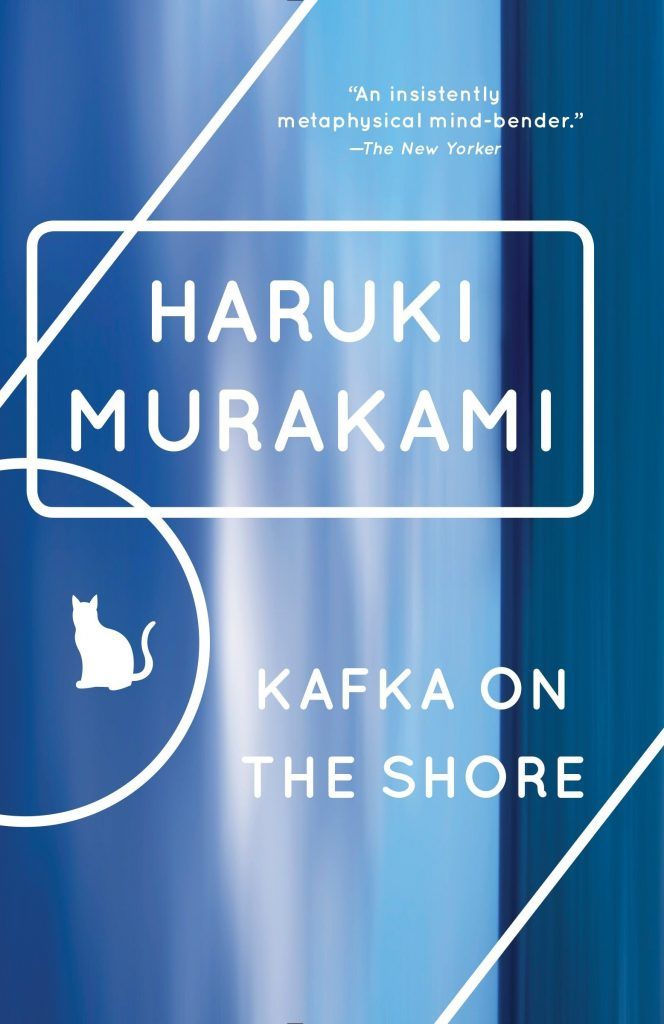Books in Brief: Kafka on the Shore

Kafka on the Shore was one of those books I fought with until about three-quarters of the way through, when the wind was at my back and we started sailing and everything was smooth and beautiful. I started reading it on the recommendation of some friends online, who thankfully didn’t tell me anything about it, other than that if I wanted something light and liked magical realism, I should read it, or if I wanted something dark and moody, I should read The Wind-Up Bird Chronicles. So I chose light.
“Magical Realism” is a frustrating category to slot something into, because it’s never clear what that means in the context of the book. Does that mean that our grip on inductive inference and causality slips a little bit and has some slack to flap around in the wind? Or does it mean that descriptions of things are to be taken more as metaphor and less as objective truth? Or does it mean the author has given up on creating a fully cohesive and linear narrative and is throwing scenes and descriptions and people at the page to try to communicate something they couldn’t communicate otherwise. (As a wise reader once said, Tolstoy had some ideas and tried to explain them to his neighbors, who didn’t understand, so he went off and wrote a book about a lady and train safety to say what he couldn’t say directly.)
Kafka on the Shore falls into the last category here, I think. But that was only apparent after reading most of the book. In the beginning I was frustrated by the protagonist Kafka and his teenage logic and over-reliance on values of toughness, strength, and solitude. I think that was just good writing, rather than some seepage from the author through the page. That relationship continued through most of the book, where someone or something would bubble up and I would get frustrated with their description, or what they said, or how they described something else. (I still think describing Price playing in the background as “like a mollusk in your head” is either a translation error or an artifact of the kind of popular literati writing between 1995–2005.)
Perhaps the first three-quarters of the book are the setup I needed to get in the headspace where the last quarter could do its work, where it does become a world of loose categories and concepts, of nonlinear time, of impressions and scattered paint. If this book makes sense in a way that can be written down and described linearly then I missed that. But I don’t think that’s an important part of the experience of reading it.
All of the following was written before I read the last quarter. It’s still relevant, but I like the book more and have warm and gentle feelings with it. There are still some ambiguities, and some expressions in the face of death and change that I disagree with, or think maybe are against my experiences and lessons with those things, but I liked the book and will more readily some of his other work.
It’s a confusing book. There are rapes abound, but it’s all washed up in this person being a representation of this memory, or maybe not, or whatever, and it’s a big psychosexual mess. In one sense that makes it exciting as a kind of vague representational poem, so I like it for that, but on the other hand, this lady rapes this kid, this kid rapes this other woman in a dream, but it’s real(?), there’s cat murder, but maybe it was metaphorical, or not, and there are embodied concepts that show up as people and act in the world. It’s not a consistent book but it’s not supposed to be. It’s interesting. Some of the descriptions, though, are really… bad. It’s a kind of writing that flourished between 1995 and 2005, and came in the tail-end of that trend: “Prince sings on, like some mollusk in your head.” I don’t understand Kafka’s why, why he’s doing most of the things he’s doing in the book. I very much like the “discussions” with the boy named Crow, and the turn from first-person to second-person in some places. (Nightvale’s The Story of You is one of the better things written this decade.) All in all I enjoyed it and it certainly evoked a reaction in me throughout, where I was talking to the book, asking it what the fuck was going on, expressing disappointment in this or that character, asking the author why this was happening after that happened. That’s a good sign, even if the book didn’t sign to me like a chorus of angels like Moby Dick or Swann’s Way. What I don’t like is the ambiguity between the author-as-character and the author and the character. Kafka’s written as this kind of old soul but is still a petulant little kid. There’s almost no discussion of masculinity or the toxicity present in Kafka’s actions as a man. That’s frustrating, but perhaps it’s an expectation of me and the time we’re in and the place I am in my life, where I look back at myself at that age and think mostly about what an utter fuck I was as a result of those expectations.
Me, rambling before finishing it.